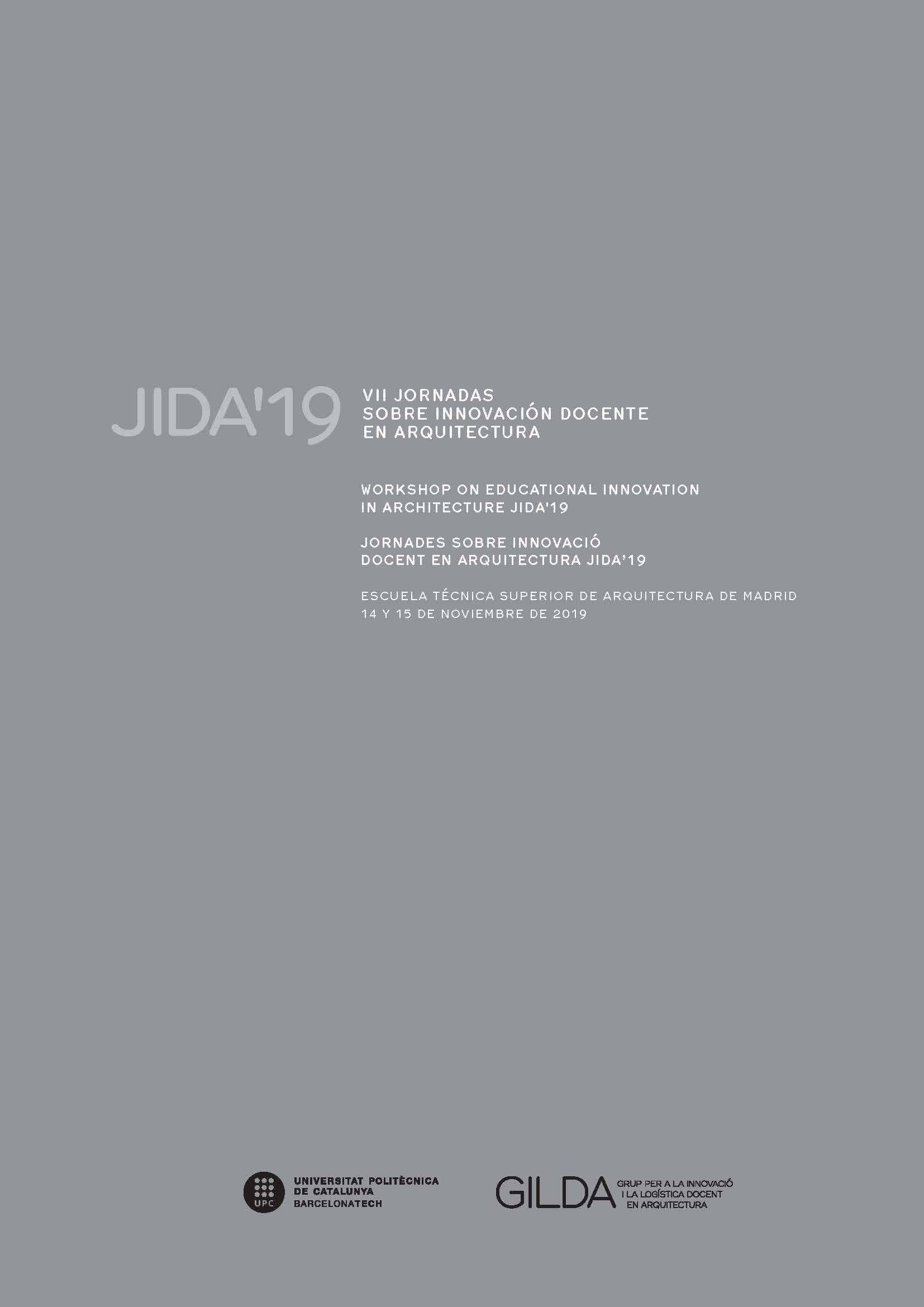International workshops as complex thinking-generating synergies
DOI:
https://doi.org/10.5821/jida.2019.8264Abstract
With this paper we want to present a format of international workshops that
combine conventional knowledge transmission methodologies (face-to-face
interaction and hierarchical organization) with innovations of a more proactive
nature (online interaction, intergroup dynamization and generation of different
levels of participation). The communication is based on the experience of having
participated in several of its editions, dealing with different topics and always
obtaining an exchange of ideas, knowledge and research that, although they have
been treated from a specific discipline such as urban planning, could be
extrapolated to other areas of knowledge. A critical analysis of the different editions
in which we have participated and their results will allow us to assess some of the
strengths of this format to generate complex thinking, critical reasoning and
international professional networks.
References
BOISVERT, J. (2004). La formación del pensamiento crÃtico: teorÃa y práctica. México: Fondo de cultura económica de España.
COMISIÓN EUROPEA (2016). Establishing the Urban Agenda for the EU. ‘Pact of Amsterdam’. <https://ec.europa.eu/regional_policy/sources/policy/themes/urban-development/agenda/pact-of-amsterdam.pdf> [Consulta: 10 de enero de 2019]
DEWEY, J. (2007). ¿Cómo pensamos?, relación entre pensamiento reflexivo y proceso educativo. España. Paidós.
ECTP-CEU (European Council of Spatial Planners - Conseil Européen des Urbanistes). Young Planners Workshop. <http://www.ectp-ceu.eu/index.php/en/youngplanners> [Consulta: 10 de enero de 2019]
ENNIS, R.H. (1985): A logical basis for measuring critical thinking skills, en Educational Leadership, 43(2), pp. 44-48.
FREIRE, P., GADOTTI, M., GUIMARAES, S. y HERNANDEZ, I. (1987). PedagogÃa. Diálogo y conflicto. Buenos Aires: Ediciones cinco.
LÓPEZ AYMES, G. (2012). Pensamiento crÃtico en el aula. Docencia e Investigación, 37.
MORIN, E. (2006). El método 6. Ética. Madrid: Cátedra.
POZO, J. (1994). La solución de problemas. Madrid. Santillana.
REIMER, M., GETIMIS, P. y BLOTEVOGEL, H.H. (2014). Spatial planning systems and practices in Europe. A comparative perspective on continuity and changes. Londres: Routledge.
SOTO GONZÃLEZ, M. (1999). Edgar Morin. Complejidad y sujeto humano. Tesis Doctoral. Valladolid: Universidad de Valladolid, <http://www.cervantesvirtual.com/obra/edgar-morin-complejidad-y-sujeto-humano--0/> [Consulta: 10 de enero de 2019]






















